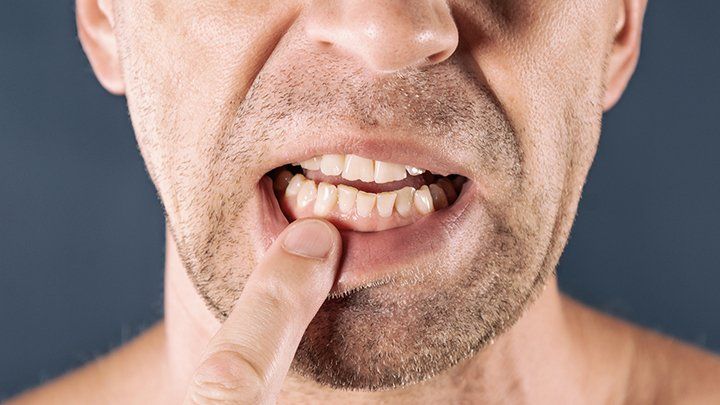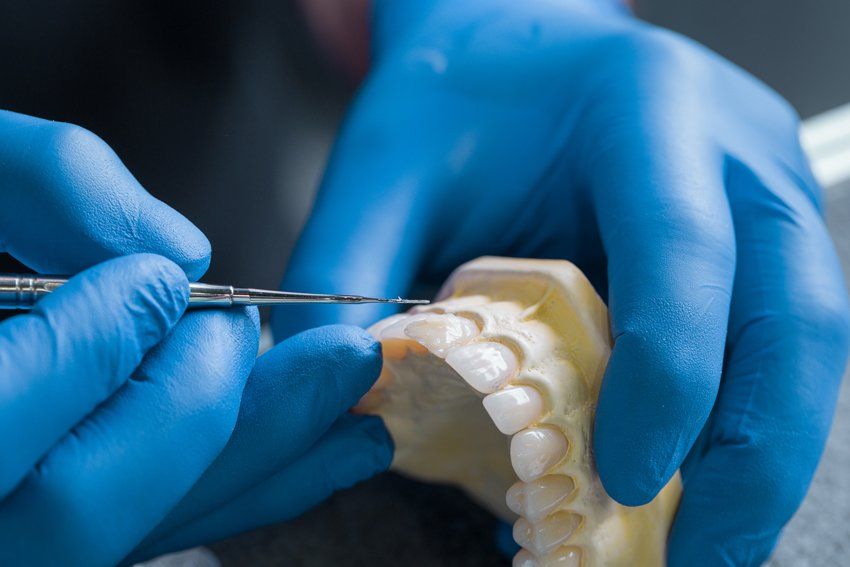What to Know About Gum Disease and Secondary Health Conditions
- By Admin
- •
- 06 Mar, 2020
- •

If your gums are tender, red, or swollen, you might be dealing with gingivitis - an early stage of gum disease. Gum disease is an inflammatory condition where the gum line is infected by plaque and bacteria. If gingivitis isn't treated, it can develop into a moderate or severe gum disease called periodontitis. Periodontitis can cause tooth loss and bone loss if it isn't treated.
While some people think that gum disease is an isolated dental problem, it's linked to a number of secondary health conditions. Read on to learn more about how gum disease affects your holistic health and how to stop it from progressing.
What Types of Conditions Are Linked to Gum Disease?
Believe it or not, gum disease has been linked to serious conditions like diabetes, heart disease, and Alzheimer's disease.
Diabetes
While researchers have found that diabetes might lead to an increased risk of gum disease, one study found that the reverse also might be true. If you have gum disease, you may be more likely to develop type 2 diabetes later in life.
Heart Disease
When a person has gum disease, bacteria grows below the gumline and can easily travel throughout the body through vascular pathways in the mouth. This bacteria can build up and lead to the narrowing of important arteries, thus increasing your risk of a heart attack or stroke.
Alzheimer's Disease
One of the main pathogens that are responsible for gum disease is Porphyromonas gingivalis (P. gingivlis). In some studies, this bacteria was also detected in the spinal fluid of Alzheimer's patients. Another study found that P. gingivlis boosted the production of beta-amyloids in the brain. Betaamyloid proteins clump together and form the plaques on brain tissue in people with Alzheimer's disease.
Why Is Gum Disease Linked to These Other Conditions?
While no clear answer exists about the casual relationship between gum disease and secondary illnesses, a lot of research suggests that if you develop a systemic disease, then your body has a harder time fighting off infection and inflammation. And since gum disease causes chronic inflammation, it could further exacerbate the immune system and perpetuate the cycle of risk for secondary conditions.
What Can You Do to Stop Gum Disease in its Tracks?
If you get gum disease and inflammation under control, you may be able to reduce your risk of secondary diseases. Thankfully, you can fight your gum disease in numerous ways.
You'll want to make an appointment with your dentist to get a proper diagnosis. They will measure the gum pockets around your teeth to see whether you have gingivitis or a more serious gum disease, then they'll help you treat whichever gum disease you have.
Mild Gum Disease
If you have a mild case of gum disease, then your dentist may be able to reduce the problem with a professional cleaning. Because the bone and connective tissue haven't been affected at this stage, you can reverse the damage by improving your brushing and flossing regimen.
Moderate Gum Disease
If you have periodontitis, your dentist may recommend scaling and root planing. This therapy is like a tooth cleaning, but the hygienist will also clean below your gumline to remove bacteria. The dentist will use a local anesthetic so that this cleaning isn't uncomfortable. Once your hygienist cleans below the gum line, your gum pockets will shrink, and the gum tissue will reach more firmly around your teeth.
Severe Gum Disease
For severe gum disease, scaling and root planing might work. However, this gum disease also affects your tooth roots and bone tissue, so your dentist may need to perform surgery and extract teeth and unhealthy bone tissue. Your dentist may also place a bone graft to help regenerate supporting tissue so that you can wear a prosthetic, like a partial denture.
Whatever stage your gum disease is at, you can correct the problem. By addressing this oral health issue, you'll be able to reap the benefits and reduce the risk of developing a systemic disease. Reach out to Teresita V. Hernandez, DDS today for more information.















